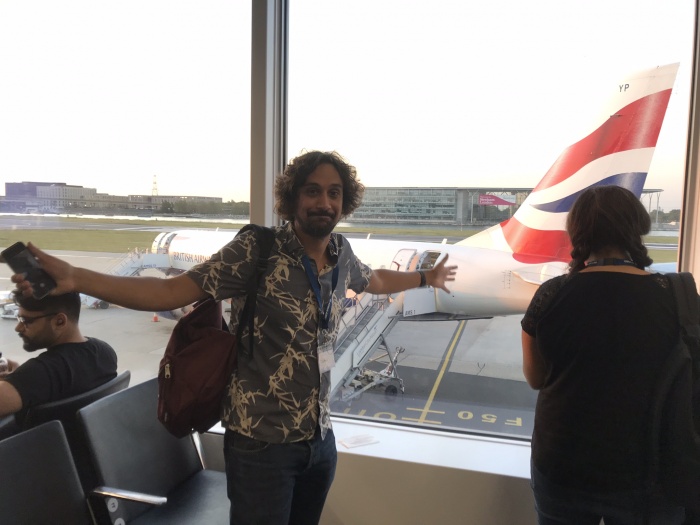
Breaking Travel News investigates: Flying with Confidence
With around a third of people in the UK professing some fear of flying, aviophobia can be a debilitating burden.
Here Breaking Travel News editor, Chris O’Toole, follows the journey of one sufferer as he seeks overcome his anxiety on the Flying with Confidence course from British Airways.
Many readers of Breaking Travel News, almost by definition, will be frequent fliers, jetting off around the world in search of adventure, new experiences or en route to the next dreaded conference.
For these passengers, heading to Heathrow is as natural as the daily commute.
But, spare a thought for those among us who dread that next flight, travellers who live in fear of the cabin door closing, leaving them trapped in an unnaturally confined space.
According to figures from British Airways, around a third of the UK population harbour some degree of anxiety when it comes to flying, impacting on everything from family holidays to career trajectories.
Among them is my long-time friend, Dan.
Following a bout of turbulence over the Atlantic on the way to New York in 1998, he battled his fears for more than a decade before eventually retreating from the skies after a trip to Morocco in 2012.
He explains: “It’s been eight years since my last flight and 21 years since the trigger event which subconsciously eroded my confidence in my ability to fly - a two-hour transatlantic rollercoaster packed with severe turbulence.”
Over time concern became fear, and fear became a phobia, leaving him unable to face the thought of ever getting back on a plane.
Of course, it’s possible to avoid flying, and in that respect aviophobia can have less of an impact than arachnophobia or claustrophobia, for example.
But what of those holidays with friends missed, the excuses made for family occasions skipped, or those careers impeded?
Over time, the costs of a fear of flying can add up.
For Dan, the next step on the career ladder is likely to require frequent trips to his company’s head office in San Francisco, prompting him to act.
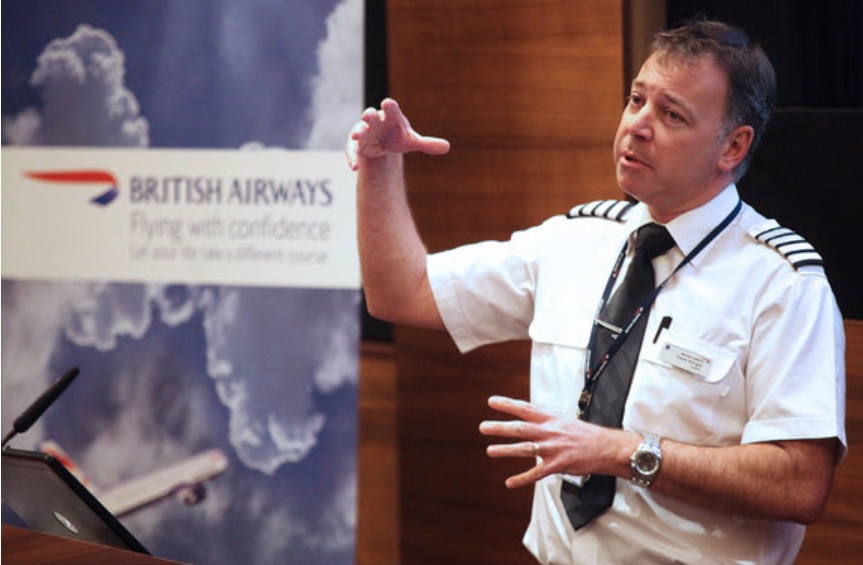
That is where Flying with Confidence from British Airways comes in.
Having recently launched at London City Airport, the course claims to have rehabilitated around 50,000 sufferers since its initial introduction in 1986.
It’s run by a British Airways captain, Steve Allright, and a specialist team who seek to explain the technical side of flying, challenging regular areas of concern such as turbulence.
But simply booking a ticket to attend can be a real challenge in itself.
Dan explains as we arrive: “The ambivalence I’ve felt over the last few weeks toward this course has intensified as we have moved closer to the event; I’ve experienced an ever-so-manic ping-ponging between visions of calmly traversing endless skies juxtaposed with sirens, increasingly rapid descent, and total annihilation.
“Today, I have gone to the effort of wearing a nice shirt to help convey a sense of occasion to the flight investigation team, as they shovel my eviscerated remains into a heavy-duty black bin bag.
“I’ve taken solace in knowing that, at the very least, there’s potential to create a quintessential comic tragedy for modern times,” he semi-jokes.
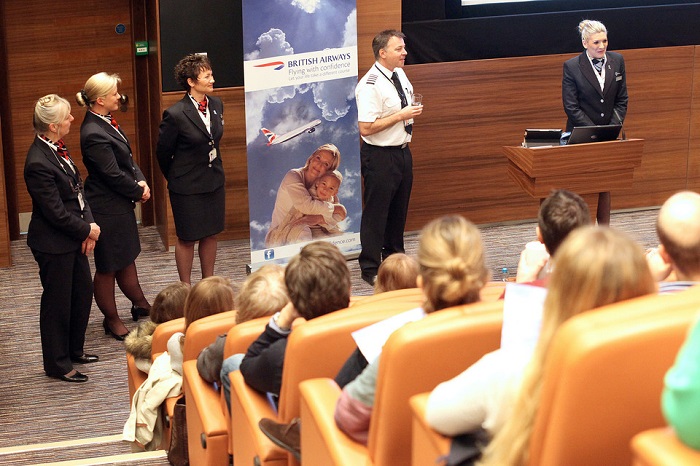
Taking place in a hotel close to London City Airport on a bright summer’s day, the group of 70 or so people on our course covers a wide demographic – there is no one type of person who is afraid of flying.
Many are, in fact, frequent fliers, businesspeople who travel for work, but have developed a gnawing fear the more time they spend in the skies.
Others, like Dan, have been hard hit by turbulence, while still more have a new sense of their own mortality following the birth of a child.
Only a small number, around ten per cent, have never flown at all.
Each is here for what captain Allright brands a “genuinely life-changing experience,” offering the opportunity to strike out into the world at large with renewed confidence.
He adds: “We love flying and want everyone to share that feeling of limitless opportunity and adventure that only air travel can really deliver.”
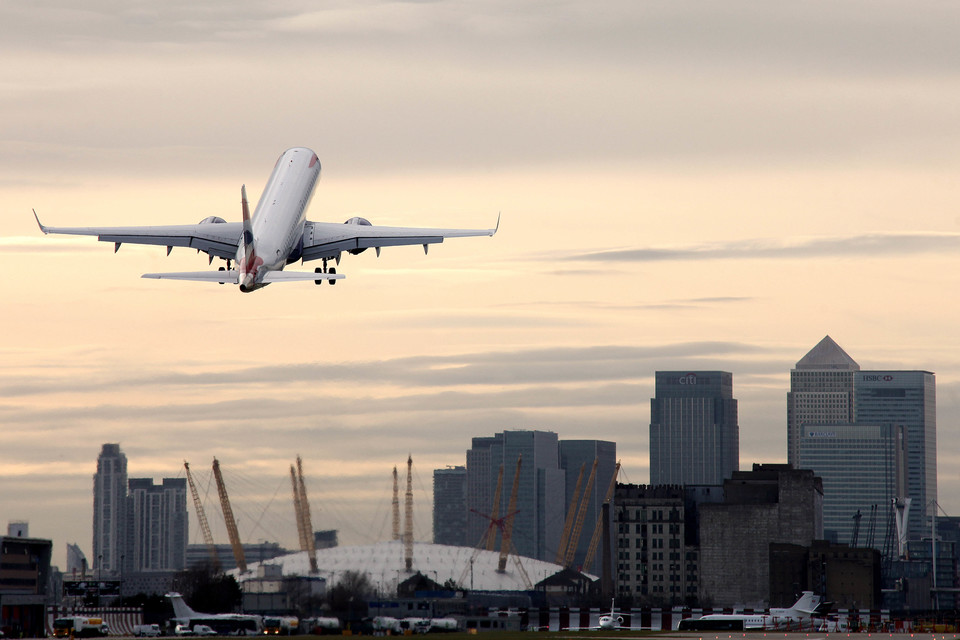
The day itself is divided into three parts.
The first two hours are dedicated to information, statistics and some basic physics.
Three British Airways pilots, with thousands of flying hours between them, explain exactly how aircraft work, detailing the forces that act upon them, while exploring what causes turbulence.
Figures are presented to illustrate just how statistically safe air travel is, while the spotlight is also shone on what would happen in an emergency.
The idea is to answer all the questions that cause anxiety among those who are scared of flying, to plug the gaps that can be filled with fear.
Key messages include knowledge that it is the wings, not the engines, that allow a plane to fly, while the group repeats, mantra-like, that turbulence is uncomfortable, but not dangerous.
Throughout it all captain Allright is a reassuring, calming instructor, leaving no room for doubt in the minds of the group – indeed, he literally wrote the book on the subject.
Following the first session, Dan takes some reassurance and says: “It wasn’t until I had relayed my experience to captain Allright that I had any professional perspective on what I had experienced.
“He told me this was an extremely rare event; the majority of pilots would not have encountered it outside of the simulator; it is known to be very uncomfortable but, to my surprise, is completely safe.
“I think this may have been a moment of psychological tectonic shift - it had not ever occurred to me that it could have been a safe scenario, all indicators had clearly pointed towards a narrow escape from death.”
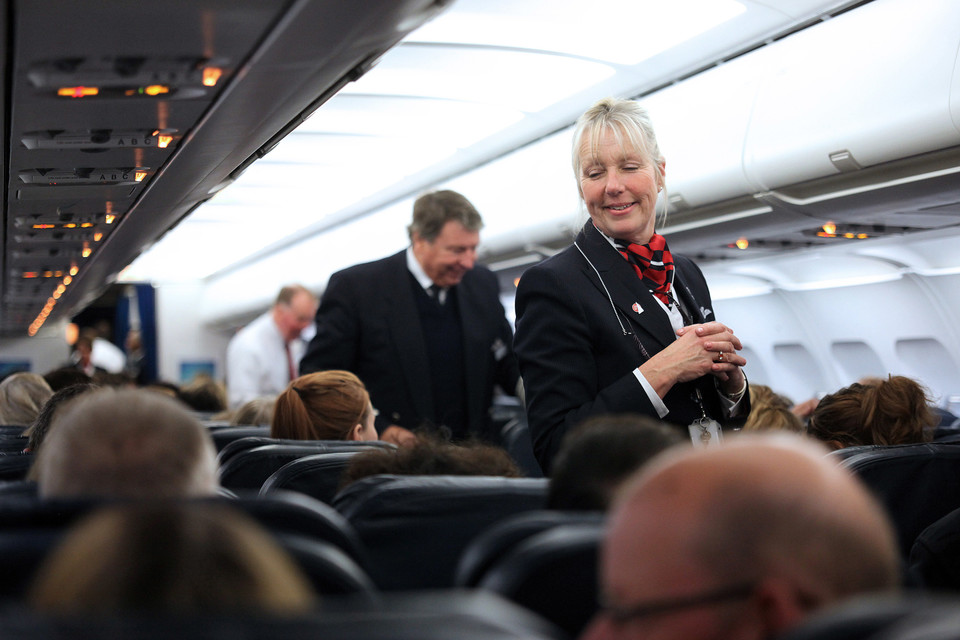
The afternoon is handed over to expert advice from clinical psychologist Keith Stoll.
In a wide-ranging presentation, the group explore relaxation techniques and ways to manage anxiety, while examining where the fear of flying comes from.
Stoll explains the human brain is not evolved for flight and that anxiety is a natural reaction.
Once this is understood, the effects can be combatted, he adds.
Before we head to the airport we are also joined by the team from our flight, with the pilots presenting a reassuring professionalism and the cabin crew heartening passengers with news they are there for their safety.
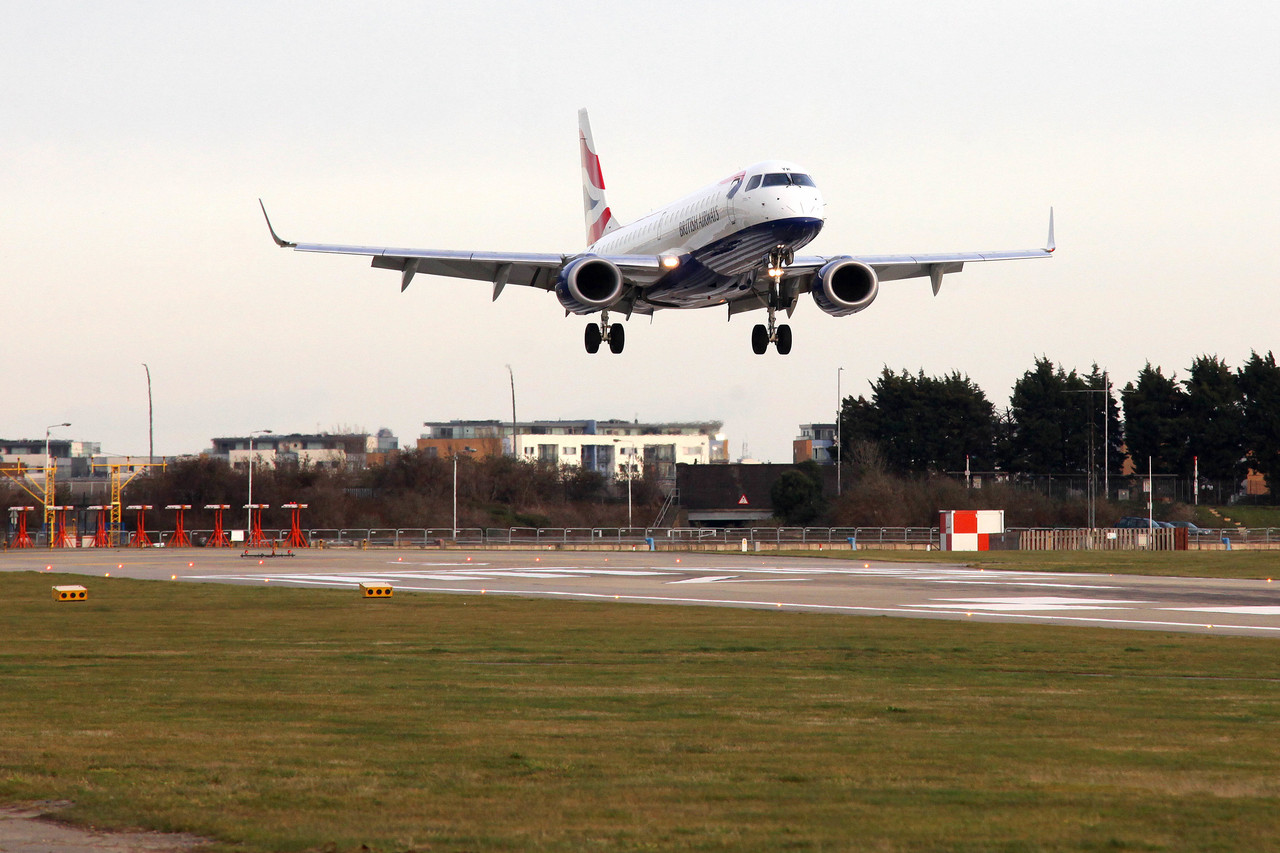
After the preparation, it is time for the flight itself.
A quick hop over to London City and we are at the boarding gate, with the mood surprisingly upbeat.
For authenticity the plane is delayed by around 15 minutes, but we are quickly on board and strapped in for take-off.
Anxiety manifests itself in many different ways; some people are energetic, chatting a little manically with their fellow passengers, while others take a moment for quiet reflection.
There is, however, no hushed silence as I expected.
Dan, in the window seat, monitors his heart rate on his watch and is pleased to see there has been no sharp spike.
He jokes: “Stepping onto the aircraft was a cathartic act in itself - I have crossed the first threshold of liberation.
“All I had to do is invoke the relaxation techniques demonstrated to us throughout the day and prepare for take-off.”
As the Embraer 190 speeds along the runway there are a few nervous glances, and we are off.
Captain Allright in the cockpit offers a soothing commentary, explaining the myriad noises the plane makes as it ascends: “Landing gear retracting, everything normal, prepare to bank left, everything normal, we will continue to rise to 10,000 feet, everything normal.”
Once airborne the mood is close to euphoric, I have never been on a flight like it.
The passengers are elated with their progress, glancing out of the window at the bright lights of London below for the first time.
A handful do, it’s true, require additional support from cabin crew, while one offers salutations to the lord.
We circle over Clacton-on-Sea on the east coast before turning and heading back to the airport.
As we descend there is some modest turbulence, but those who need to turn to their breathing exercises to overcome any anxiety.
Indeed, some passengers seek a bumpier ride in order to measure the progress they have made in overcoming their fears – the only flight I have ever been on where passengers want more turbulence!
In a matter of moments, we are back on the ground.
Dan sums up how he feels: “The anticipation of an event like this is often disproportionately challenging compared to experiencing the event.
“Nobody panicked, there were no mid-flight attempts to escape through a porthole window; in fact, the very opposite applied.
“I saw people walking around the plane with relieved smiles on their faces, there was an exchange of hugs and congratulations, one attendee even broke out into dance in the aisle…”
A quick check of the watch reveals a stable heartrate as we disembark, another sure sign everything has gone well.
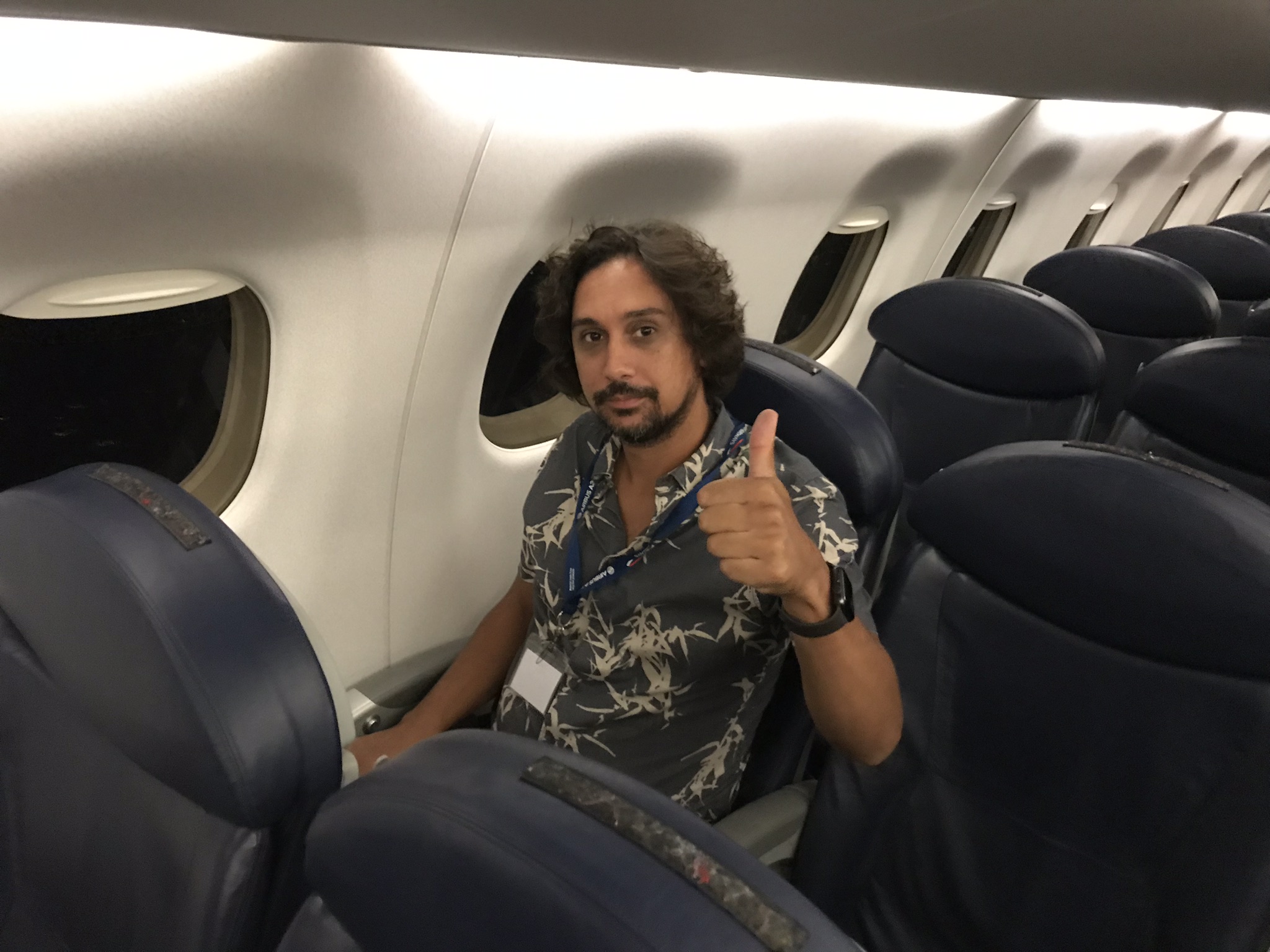
The Flying with Confidence organisers claim a 98 per cent success rate.
While this may be true in the strictest sense (we did indeed only lose a couple of attendees during the day, with the vast majority boarding the flight), the course can only open the door.
The real challenge will be boarding a commercial flight with friends or family, using the tools learned to make travel a more tolerable, if not pleasurable, experience.
This is the first step of the journey, not a quick fix.
As we head out of the airport, Dan explains: “I think the course achieved what it set out to do: I boarded a plane and, for the first time in many years, was not entirely consumed with existential angst.
“I’m happy to accept that I may never fully exorcise the creeping void that comes and goes during a flight, but I now have a healthier mindset, and useful techniques, to help deal with those moments should they arise.”
With his newfound confidence, he is already making plans to head to Spain or France as he builds up to San Francisco – where his future awaits.
More Information
The British Airways Flying with Confidence course runs at a number of UK airports throughout the year, with the next scheduled for London Gatwick on September 28th.
Find out more on the official website.

